- Author Antonio Harrison harrison@cultureoeuvre.com.
- Public 2023-12-16 07:44.
- Last modified 2025-01-22 21:44.
Alexandra Ilyinichna Strelchenko was born on February 2, 1937 at the Chaplino station, Dnepropetrovsk region. Many people may have a natural question: "Who is this in general?" The answer is: Soviet singer, vocalist and artistic director of the folklore workshop of the Moscow state cultural institution "Moskontsert". People's Artist of the RSFSR (1984).
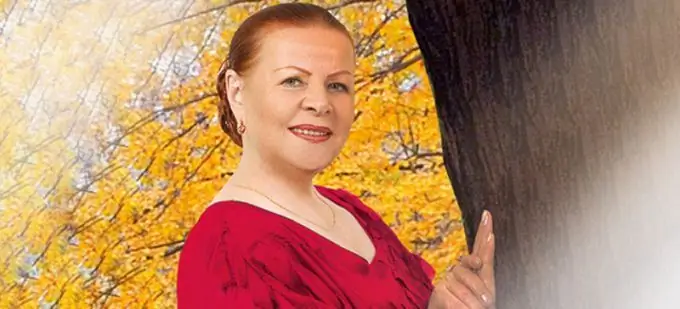
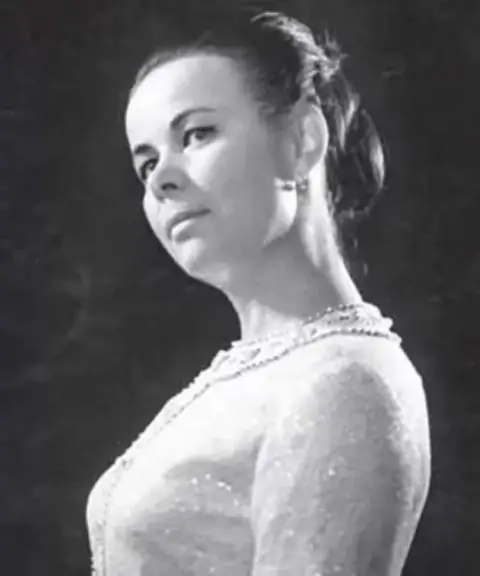
Biography
The future singer was born at the Chaplino station of the Dnepropetrovsk region of the Ukrainian SSR. Parents: Father - Strelchenko Ilya Evgenievich (1911-1941), Mother - Strelchenko Polina Pavlovna (1916-1945). Alexandra became an orphan early. Father died at the front, mother died at the end of the Great Patriotic War. In total, the family had three children. Older sister Valentina was taken by her aunt. And Alexandra, who at the age of 8 was left a complete orphan, and her younger brother Anatoly were sent to an orphanage. After graduating from school, she worked as a nanny in a kindergarten. Then she studied at the correspondence department of the Leningrad Pedagogical Institute. During the tour of the Voronezh Folk Choir in 1958, Alexandra, having attended his concert, decided to leave her studies and devote herself to a musical career.
From 1959 to 1962 she worked at the Lipetsk Philharmonic.
Since 1963 she worked in Moscow, having completed a one-year internship at the All-Russian Creative Workshop of Variety Art.
Since 1964, Alexandra Strelchenko has been a soloist of the Moskontsert and artistic director of the Folk Art Workshop at the Estrada Concert Association.
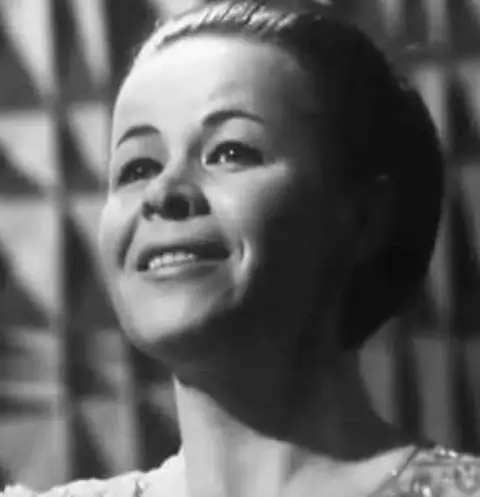
In 1971, for the best radio recording of the folk song "Bela Zorenka" at the International Competition in Bratislava (Czechoslovakia) she was awarded the 2nd prize and a silver medal - "Silver Ear".
From 1976 to 1980 she was educated at the Gnessin Music and Pedagogical Institute.
Nowadays
Since 2002 - Professor of the Moscow State University of Culture and Arts, Head of the Department of Solo Folk Singing.
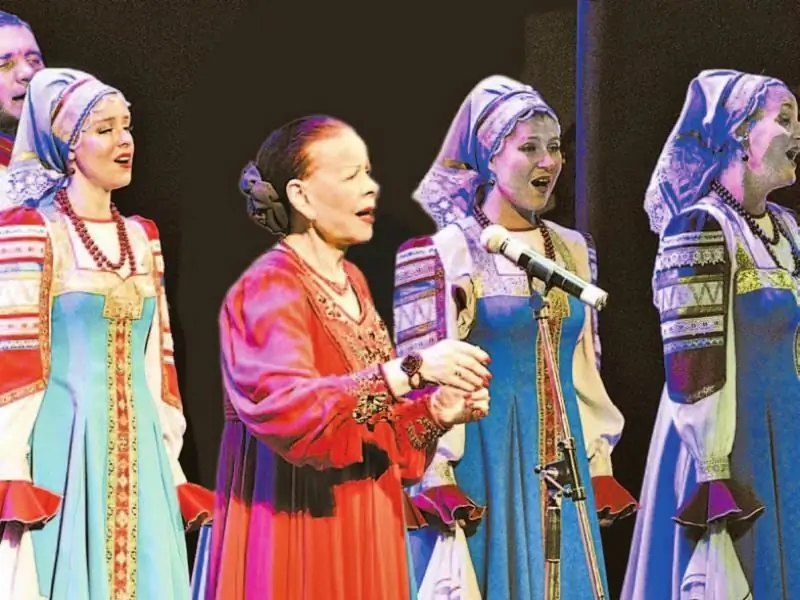
In recent years, Alexandra Strelchenko has actively performed with the Osipov National Orchestra of Russian Folk Instruments (first under the direction of N. Kalinin, now - Ponkin), as well as with municipal orchestras in cities such as Chelyabinsk, Ulyanovsk, Volgograd, Petrozavodsk, Lipetsk, Tula and etc. Alexandra Strelchenko takes part in charity events, speaking to veterans of war and labor, to orphans in orphanages, is an active participant in concerts dedicated to the memory of outstanding figures of our national culture, whom she knew personally, held in the Concert Hall "Russia", the Concert Hall named after Tchaikovsky, at the Central House of Arts, etc.
As the chairman and member of the jury in the nomination "Solo folk singing" A. Strelchenko in recent years has visited Smolensk, Bryansk, Vologda, where the Delphic Youth Games were held. Took part in concerts and festivals: the 100th anniversary of the birth of Lydia Ruslanova in Saratov (2000), The Voice of Russia - Smolensk (2003). There were solo concerts by A. Strelchenko with programs of Russian romance: the house-museum of F. I. Shalyapin, A. Shilov's Gallery, the House of Scientists, the House of the Architect, etc.
Personal life
Personal life of Alexandra:
The first husband is Major General, KGB officer Vladimir Chekalov.
Second husband - drummer Vladimir Morozov
The singer has no children. According to her, she did not have time to give birth from her first husband, and from the second she did not want to.
In her free time, Alexandra Ilinichna is fond of many things: she loves nature, animals, flowers; prefers classical Russian literature, music, ballet, folk melodies, jazz. Her favorite artists are O. Tabakov and N. Mordyukova, I. Arkhipova and A. Vedernikov. She was the favorite singer of Khrushchev and Brezhnev. She was called the queen of a folk song, the hits "Give me a headscarf", "When I had mountains of gold", "Curly mountain ash" sounded at every feast. The voice of this singer has graced the films "War and Peace", "Kalina Krasnaya".
Disease
In the mid-1990s, the singer and her second husband had an accident, which caused big problems with the spine and hip joint. Each step was given to her at the cost of severe pain.
September 17, 2015 the program "Let them talk" with Andrey Malakhov on Channel One was dedicated to Alexander Strelchenko. The whole country was shocked by the news that Strelchenko was hospitalized on September 14, 2015 with a stroke. The reason for the sharp deterioration in the singer's health is the conflict that arose around her apartment in the center of Moscow. The artist signed an agreement with her student that, in exchange for care and attention, she will bequeath her luxurious Moscow apartment to her. Alexandra Ilinichna fulfilled her obligations, but the girl did her job in bad faith. Strelchenko decided to terminate the contract, but this had to be done through the courts. With the support of family and friends, she managed to win an argument. In addition, the judge went to meet the people's artist. This whole conflict greatly undermined the artist's already poor health. Alexandra Ilyinichna was taken to intensive care. She is now being looked after by a specially trained nurse. Having got rid of the rogue student, the artist began to feel much better. She began to speak slowly, returning to her previous form.
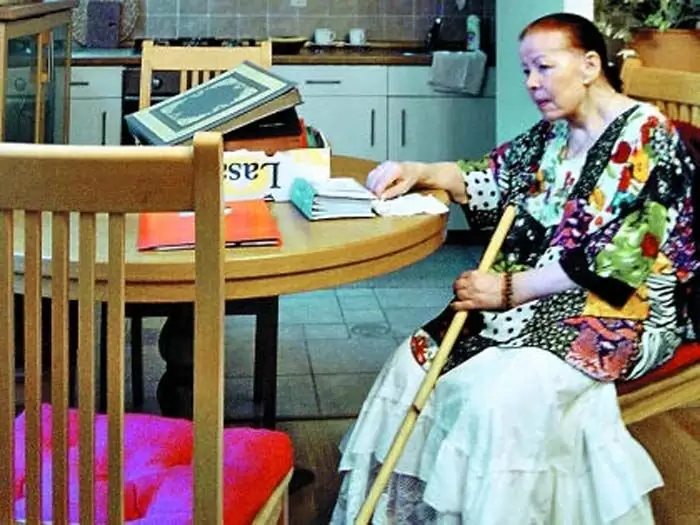
After the scandal with the apartment, the performer ended up in a hospital bed with a stroke. Alexandra Ilinichna suffers from high blood pressure. In the fall of 2017, it became known that Alexandra Strelchenko was fighting Parkinson's disease.
She rarely leaves home, but regularly visits the hospital. Sometimes she finds the strength to visit holy places, she was, in particular, in the monastery in Dmitrov.
The People's Artist has not given interviews for many years, the doors of her house are closed to everyone: "I want to be remembered beautiful," she explained.
Testimonials
Singer Ivan Kozlovsky spoke about the work of the national artist:
“First of all, Strelchenko has an amazing quality: a complete absence of imitation and counterfeiting of the people. What she sings about, the sound, the form, I think, was hundreds of years ago, and will be with future generations, as long as the people and joy and sorrow will express in song."
- Journal "Selskaya nov" for 1986.






